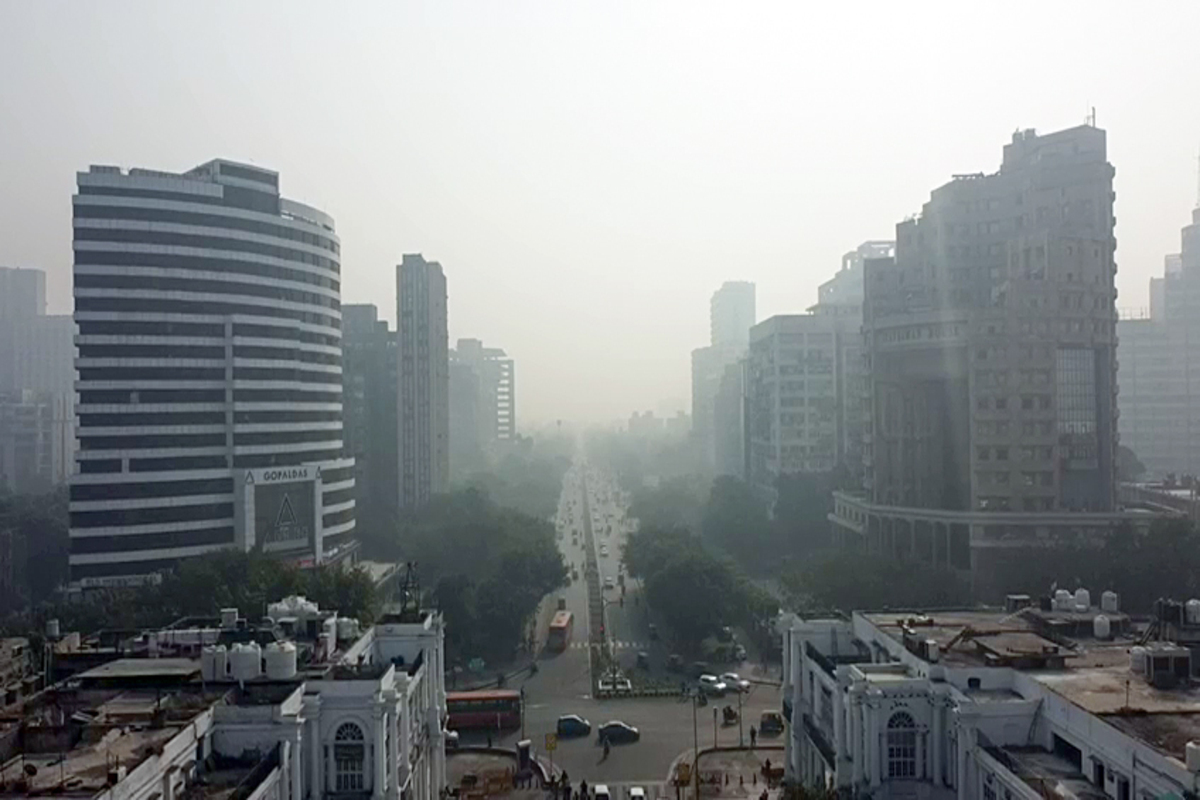No respite for Delhiites from toxic air as AQI remains ‘very poor’
According to the Central Pollution Control Board (CPCB), Delhi's average AQI on Thursday was 377 at 4 pm, while several places recorded air quality in the 'severe' zone.
The Central Pollution Control Board (CPCB) said that the air quality had improved to ‘poor’ category from the ‘very poor’ category With a slight improvement in the AQI.

A drone visual shows the Connaught Place area covered in smog as the air quality in the national capital (ANI Photo)
The residents of the national capital on Tuesday got a brief respite from the toxic air as the average Air Quality Index was measured at 286, registering a drop of 44 points, compared to Monday’s 330.
The Central Pollution Control Board (CPCB) said that the air quality had improved to ‘poor’ category from the ‘very poor’ category With a slight improvement in the AQI.
The prominent pollutants in the city’s air on Tuesday continued to be the PM 2.5 microparticles as per the data released by the CPCB.
Advertisement
Experts said that the PM 2.5 microparticles are small enough to penetrate deep into the respiratory tract and could trigger health issues as well.
No area in the city recorded the AQI in the ‘severe’ zone, the CPCB said. The highest level of AQI in the city was recorded in Nehru Nagar at 346, followed by Jahangirpuri – 326, NSIT Dwarka – 318, and Mundka – 315.
The improvement could be attributed to the increase in the wind speed in the national capital, which was 11.1 km/ hr on Tuesday at 1700 hours, according to the Indian Institute of Tropical Meteorology (IITM). However, the air quality may witness a decline in the next two days, it added.
“The air quality is likely to deteriorate significantly and reach the upper end of the ‘very poor’ category on 22.12.2023. The air quality will deteriorate further on the 23rd and 24th December,” the air quality monitoring agency said on Tuesday in its outlook for the subsequent 6 Days.
Meanwhile, authorities are regularly checking such vehicles which emit pollutants and also do not have valid Pollution Under Control certificates. All steps are in place to ensure implementation of anti-pollution measures across the city.
Government agencies are also keeping an eye on biomass burning incidents in the city to restrict air pollution levels.
Graded Response Action Plan (GRAP) stages-I & II continue to remain in effect across the city and NCR region as per the instructions issued by the Commission for Air Quality Management.
The CPCB said that the air quality across NCR cities like Faridabad, Ghaziabad and Noida continue to reel under the ‘poor’ category. However, the air quality witnessed improvement in Gurugram and Sonipat where the AQI levels were in the ‘moderate’ zone now.
Advertisement